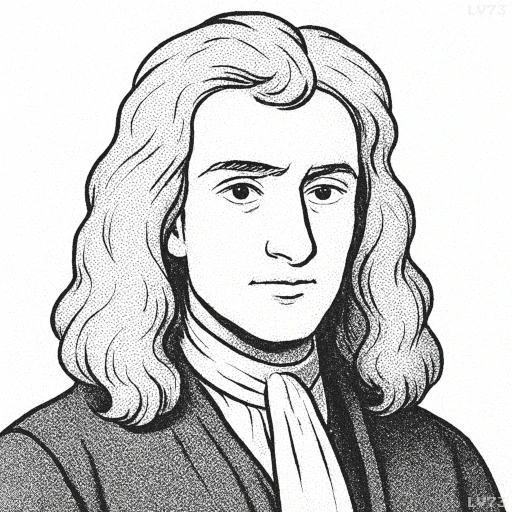“All variety of created objects which represent order and life in the universe could happen only by the willful reasoning of its original Creator, whom I call the ‘Lord God.'”

- January 4, 1643 – March 31, 1727
- Born in England (UK)
- Natural philosopher, mathematician, physicist, astronomer, theologian
table of contents
Quote
“All variety of created objects which represent order and life in the universe could happen only by the willful reasoning of its original Creator, whom I call the ‘Lord God.'”
Explanation
In this quote, Isaac Newton expresses his belief in the divine creation and intelligent design of the universe. He argues that the order and complexity found in nature could not have arisen by chance, but instead must have been the result of willful reasoning by a Creator—whom Newton refers to as the Lord God. Newton’s view is rooted in the idea that the natural world operates according to laws of order and design that reflect the intentional and rational nature of a divine being. For Newton, the precision of mathematical laws governing the motion of planets, the properties of light, and other natural phenomena provided clear evidence of a higher intelligence at work behind the universe.
Newton lived in a time when science and religion were not seen as opposing forces but as complementary means of understanding the world. He did not view his work in physics and mathematics as separate from his faith but rather as a way to understand the mind of God through the study of nature. In this sense, Newton’s scientific discoveries were seen not only as contributions to human knowledge but also as insights into the divine order that governed the universe. His work was deeply influenced by his belief that the universe was created with a purpose and that the natural world reflected the rationality and orderliness of its Creator.
In modern times, Newton’s belief in a divine Creator remains a point of interest in the intersection of science and religion. While Newton’s scientific theories, particularly in the realm of gravity and motion, form the foundation of classical physics, his view that the universe reflects a divine order resonates with those who see science as a way to understand the natural world created by a higher power. Even as modern science often operates within a secular framework, Newton’s words remind us that the quest for understanding the universe was, for him, deeply tied to his faith in a rational and purposeful Creator.
Would you like to share your impressions or related stories about this quote in the comments section?


